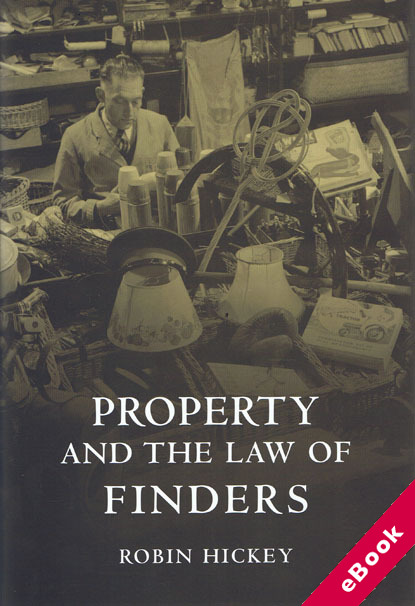
The device(s) you use to access the eBook content must be authorized with an Adobe ID before you download the product otherwise it will fail to register correctly.
For further information see https://www.wildy.com/ebook-formats
Once the order is confirmed an automated e-mail will be sent to you to allow you to download the eBook.
All eBooks are supplied firm sale and cannot be returned. If you believe there is a fault with your eBook then contact us on ebooks@wildy.com and we will help in resolving the issue. This does not affect your statutory rights.
Are finders keepers? This most simple of questions has long evaded a satisfactory legal answer. Generally it seems to have been accepted that a finder acquires a property right in the object of her find and can protect it from subsequent interference, but even this turns out to be the baldest statement of principle, resting on obscure and confused authority.
This first full-length treatment of finders sets them in their legal-historical context, and discovers a fascinating area of law lying at the crossroads of crime, obligations, and property. That on the same facts a finder might be thief, bailee, and/or property right holder has clouded our conceptual analysis, and prevented us from stating simply our rules about finding. Nonetheless, when the applicable doctrines and policies of our property law are explored, and particularly the central concept of possession, we can argue confidently that, despite centuries of doubt and confusion, English law has succeeded in producing a body of law that is theoretically and practically coherent.
Property and the Law of Finders makes this argument, and will appeal to anyone specifically interested in the law of personal property, and also to those with broader concerns about the evolution of common law concepts and their ability to yield workable, practical solutions.